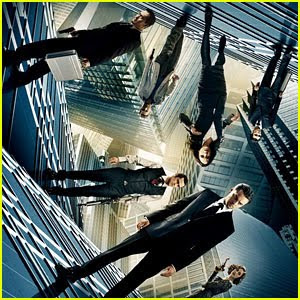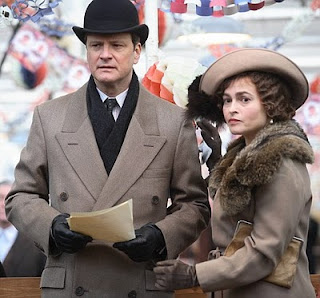As you may know, Sunday brings us the Academy Awards, and I know at least one [tk]er has seen all ten Best Picture nominees. Embarrassingly, I've only seen three--and yet there are ballots to fill out and contests to win!
In the absence of actual knowledge, I'm resorting to what I do best: playing with words. Using only the ancient art of the anagram (with the help of an online generator), then, let's try to predict what film will win Best Picture.




[The] Kids Are All Right: Harried Gals Kilt
It's unlikely, if possible, that the anagram generator expects Annette Bening and Julianne Moore to show up to the Oscars in kilts. No, I suspect this means the "harried gals" and their mostly lackluster (with the exception of Mark Ruffalo) movie will be kilt by the competition.

The King's Speech: Henpecks Eights
The anagram generator predicts--to no one's surprise--that The King's Speech will push aside most contenders--with the exception of one.
The length of this title spelled out broke the anagram generator, exceeding the site's capacity. Let's assume that James Franco's manic energy--and any excess from director Danny Boyle--will similarly confound the Academy.

Well, this bodes poorly for the flannel-robed Jesse Eisenberg. Sorry, Jesse, looks like The Social Network is out, although perhaps you'll win Best Actor for playing "a cloister wonk."

It was always unlikely that Toy Story 3 would win, and the anagram generator throws in another harsh, yet valid, point--as others have pointed out, from what exactly is Toy Story 3's screenplay adapted? That story is untethered, yo.

I disagree with the generator on this, but what can you do? Looks like the Academy will wipe its feet with this one.
Winter's Bone: Newbies Torn
Good try!
The anagram generator is of necessity a bit vague, but I think we can determine a winner here. While it looks to be a close race among Inception, The King's Speech, and The Fighter, Inception is simply not "on top," and The King's Speech only beats eight of its competitors. Let's not forget, either, that The Fighter is a story of hard-won and somewhat unexpected success. Against all odds, The Fighter will win Best Picture.
Don't look at me: it's all in the names.




